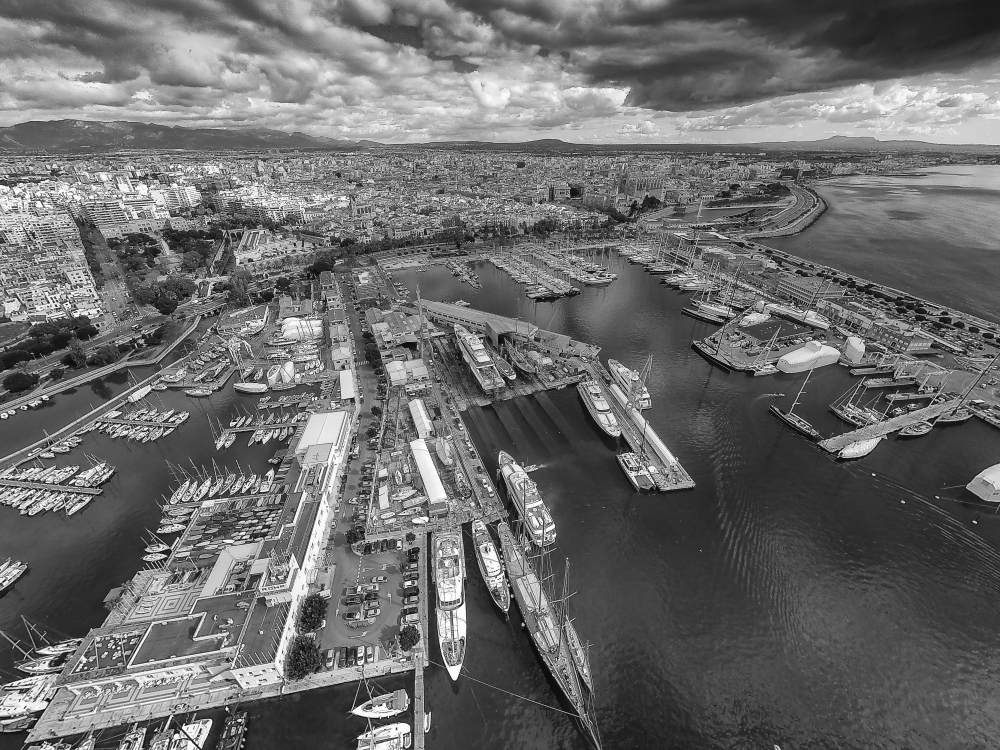Astilleros De Mallorca and the road zero
Lucia Mingot opens up on the sustainability projects already underway at the refit shipyard…
For this article, Guest Author Lucia Mingot, Director of Quality and Innovation at Astilleros De Mallorca, outlines some of the sustainability achievements that have been reached over the last twelve months, current projects underway, and opportunities that will be presented in the future…
We have been working on sustainability since 2004, and we see it as a long-term endeavour, so each year inevitably brings its own challenges and opportunities. Over the last twelve months, our work has covered a very broad variety of achievements…
I will start with a project in cooperation with COB (Balearic Oceanographic Centre), part of the Spanish National Research Council (CSIC), and the Port Authority of Palma de Mallorca. The project is focused on the regeneration of the waters of the port of Palma using mussels as bioremediation agents. The mussels were placed in three positions inside the port (two of them around the yard) and a fourth one outside the port as a control point. We fabricated the anchoring system and the protective structures while our divers placed the units in the selected locations.
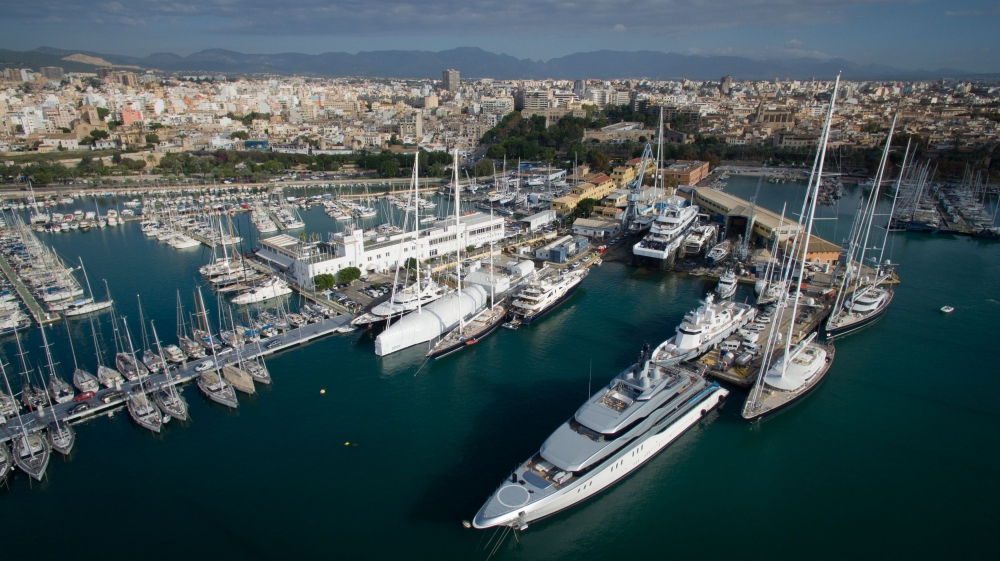
Different analysis has proven the capacity of accumulation of various elements by the mussels, such as zinc or copper, which is always present wherever a boat is moored. This first proof of concept has been followed by the second phase in a local marina. After this second experience, the system may be ready to be applied to other Mediterranean ports with characteristics similar to the Balearic Islands.
We are also working on the reduction of the impact of the painting process, this is being carried out alongside the paint companies we work with. The filtration system installed in the protective hoods has proven to be very effective, with results of COV emissions 70% below the legal limit and particulate matter emissions 60% below the limit. The next step will be to change the cleaning process of spray guns to ensure that it is always carried out within confined spaces, fitted with filtration media.
Moreover, we have measured our carbon footprint and made it public through the Spanish Database of Carbon Footprint emissions (MITECO). From now on, we will be presenting our results on an annual basis, along with the complete measures we have established for our reduction goals and a series of planned actions.
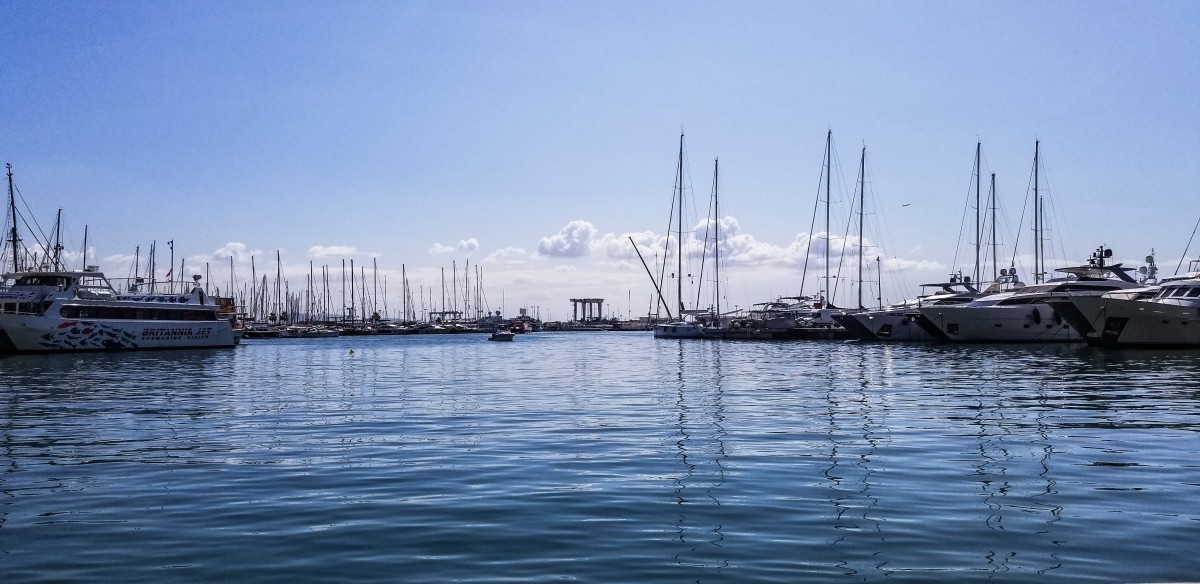
Since 2020 the shipyard has been purchasing green energy. Last year, 2022, we looked to increase the percentage of that energy that is generated locally, in Mallorca. The local government is promoting an increase in green energy generation with a goal for 2030 of 35% of the generated energy to be green. The increase in demand from companies such as ourselves helps to speed up the change.
We have also signed a contract for the installation of 226 solar panels on the roofs of our Canteen and Metal workshop and offices. We estimate that this will provide a production of 170Mwh. The installation is due to start during the approaching Christmas Holidays. Unfortunately, the remainder of our roofs presents technical difficulties for solar panel installation; we are currently studying the feasibility of the installation.
Another project for this year is the cooperation with local entities in carbon offset projects. We would like to offer a reliable and local solution to clients who are interested in offsetting the carbon footprint generated by them during the repairs at the yard.
Our waste collection system has been improved this year with the intention of increasing the number of residues prepared for reuse or valorisation. This is the case for wood and industrial plastics that now have permanent containers and textiles that are collected as per project necessities. Along with the Balearic Marine Cluster we have a research project to reuse the sand used within the sandblasting processes. The studies are being made in a research centre in Vigo in the north of Spain. Throughout the year we will study the installation of additional containers in order to collect the organic waste from the yachts (we already collect our canteen organic waste). This residue will be used to fabricate compost.
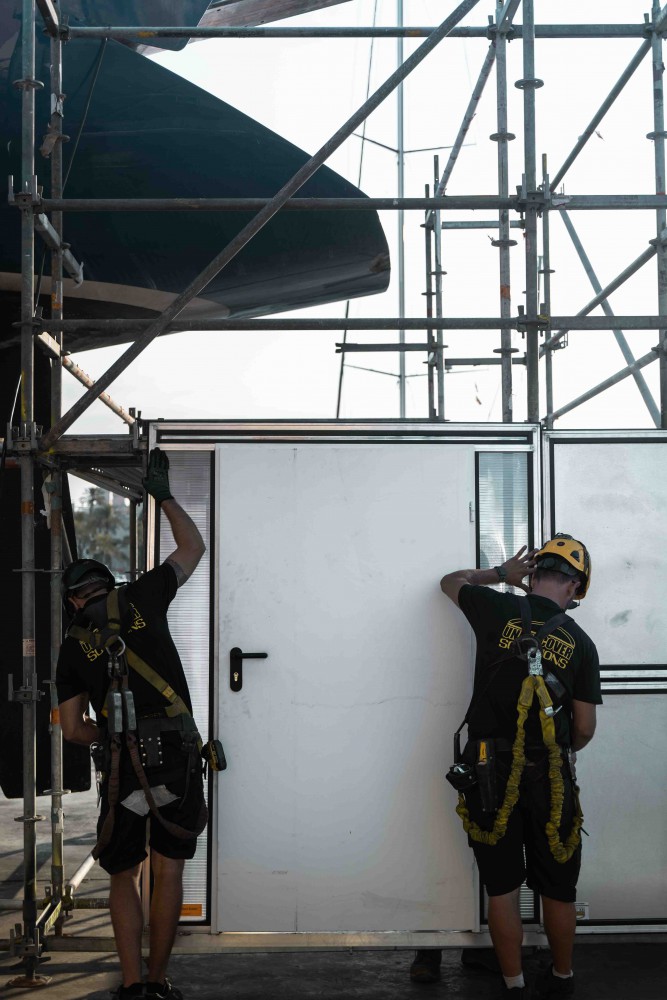
A greater reduction of plastic waste has been achieved by the use of new tents constructed using rigid reusable panels. Some of them are installed in the area that we call “the beach”. We have supported and encouraged the company that makes the scaffolding for the yard in this project, and the first tent using this new concept was erected here. We are happy to see the idea has been successful and tents are being implemented in other repair centres on the Island. The idea is evolving to a smart tent with energy generation, better environmental conditions in both temperature and humidity and enhanced security in terms of fire response.
We have cooperated in the training of an AI system to detect spillages on the sea surface. The company that developed the system needed a place to install cameras monitoring the sea surface for the final training of the AI. After a few months of them being installed in our docks, the camera has been trained to distinguish the shade of a boat, the reflection of the sun in the mornings, a floating log, the change in the surface when the wind rises and other elements that make the sea surface change. Now the camera is more prepared to distinguish between when it is a spillage and when it is not. This may help locate spillages for a speedy cleaning and will also help to identify the areas in which the residues end and install cleaning systems such as our SEABIN.
In cooperation with four other entities, we have presented a project towards the decarbonization of the sector to the prestigious call for innovative projects MISIONES of CDTI (Part of the Ministry for science and innovation). We are proud to have been assigned the founding, as only 41 of the 137 projects have been selected. The project includes different lines of work such as the production of green NH3, the development of a dual fuel cell (H2/NH3), the development of a SOFC-H cell, and study of materials for storage purpose.
The Balearic Islands is developing the project GreenHysland to promote the use of Green H2 on the island. A generation plant has already begun trials in the centre of the island, and provisions for the distribution are part of the project. In line with that project Astilleros de Mallorca has made a cooperative study with other shipyards in Spain and a research centre to analyse the feasibility to install a fuel cell in the yard and select among the various technologies available on the market. Coming back to practical everyday matters, this year we have set ourselves the challenge to change the products used in the cleaning of our offices to certified biodegradable products.
As of the 9th of January, Astilleros De Mallorca has been awarded the ILS (Industria Local Sostenible) recognition as a company committed to reducing carbon print every year. This is an award by the local government for companies that are playing their part in the reduction of their carbon footprint.
Profile links
NEW: Sign up for SuperyachtNewsweek!
Get the latest weekly news, in-depth reports, intelligence, and strategic insights, delivered directly from The Superyacht Group's editors and market analysts.
Stay at the forefront of the superyacht industry with SuperyachtNewsweek
Click here to become part of The Superyacht Group community, and join us in our mission to make this industry accessible to all, and prosperous for the long-term. We are offering access to the superyacht industry’s most comprehensive and longstanding archive of business-critical information, as well as a comprehensive, real-time superyacht fleet database, for just £10 per month, because we are One Industry with One Mission. Sign up here.
Related news
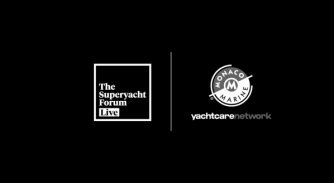
Meet the partners: Monaco Marine at The Superyacht Forum
Tanguy Ducros and Pierre-François Lepoutre discuss the growth of the refit infrastructure network along the French Riviera
Business
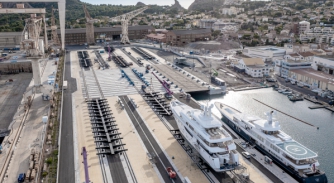
Squircle Capital increases controlling stake in MB92 group
Squircle Capital is now a 93% shareholder of the group
Business
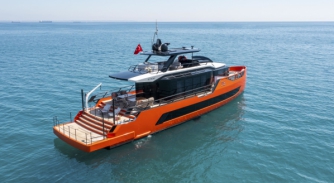
Boero YachtCoatings’ full paint system
Boero discusses its full paint system project with the 26m Sarp XSR motor yacht EDGE
Business
Related news
Boero YachtCoatings’ full paint system
3 years ago
NEW: Sign up for
SuperyachtNewsweek!
Get the latest weekly news, in-depth reports, intelligence, and strategic insights, delivered directly from The Superyacht Group's editors and market analysts.
Stay at the forefront of the superyacht industry with SuperyachtNewsweek


